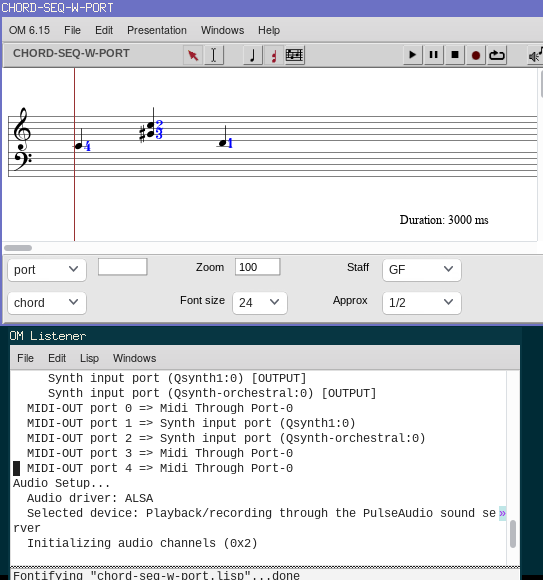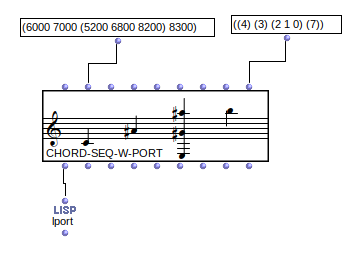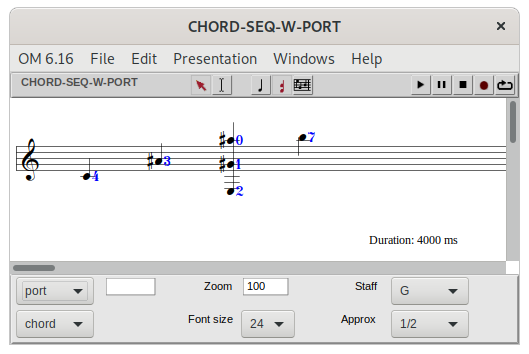Hi to all!
How do I input a list of ports to a chord-seq?
Since I am using different soft-synths (samplers) for OM playback, I need to assign different ports to the notes in a chord-seq.
In other words, I need to be able to manipulate port-list as any other parametric list in chord-seq (lmidic, lonset,ldur,…).
The existing function set-port assigns one port per chord-seq, but I need to assign a list of ports to chord-seq.
I am using OM 6.9 on Macbook. (I didn’t have time to learn about the midi-settings in the newer OM versions. Also I had some problems with installation of newer versions, so I postpone my OM update for later.)
Please, can anybody help me here? (I am running for deadline 
All the best!
Aliser

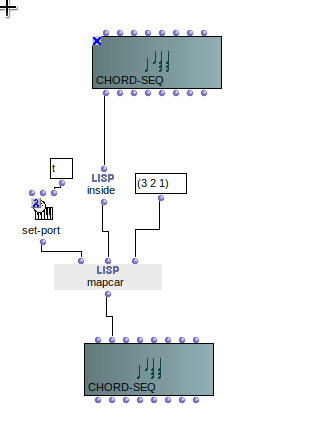
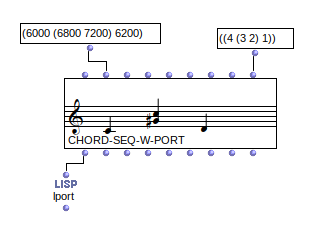
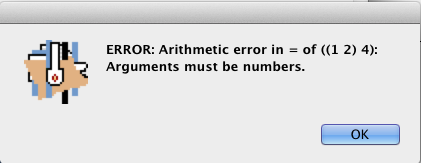 When I open the last chord-seg it displays different ports in a strange way.
When I open the last chord-seg it displays different ports in a strange way. 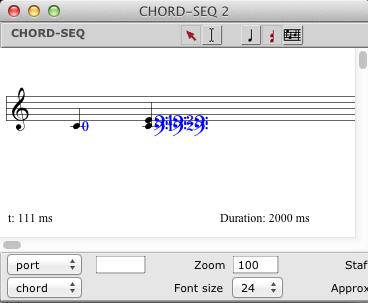 and there is no playback for the notes on ports other then 0. Even more, after the evaluation, all the chord-seqs in the line display the same error. After I used playback (getting the error message) and close the chord-seqs I can not reopen it again.
and there is no playback for the notes on ports other then 0. Even more, after the evaluation, all the chord-seqs in the line display the same error. After I used playback (getting the error message) and close the chord-seqs I can not reopen it again.